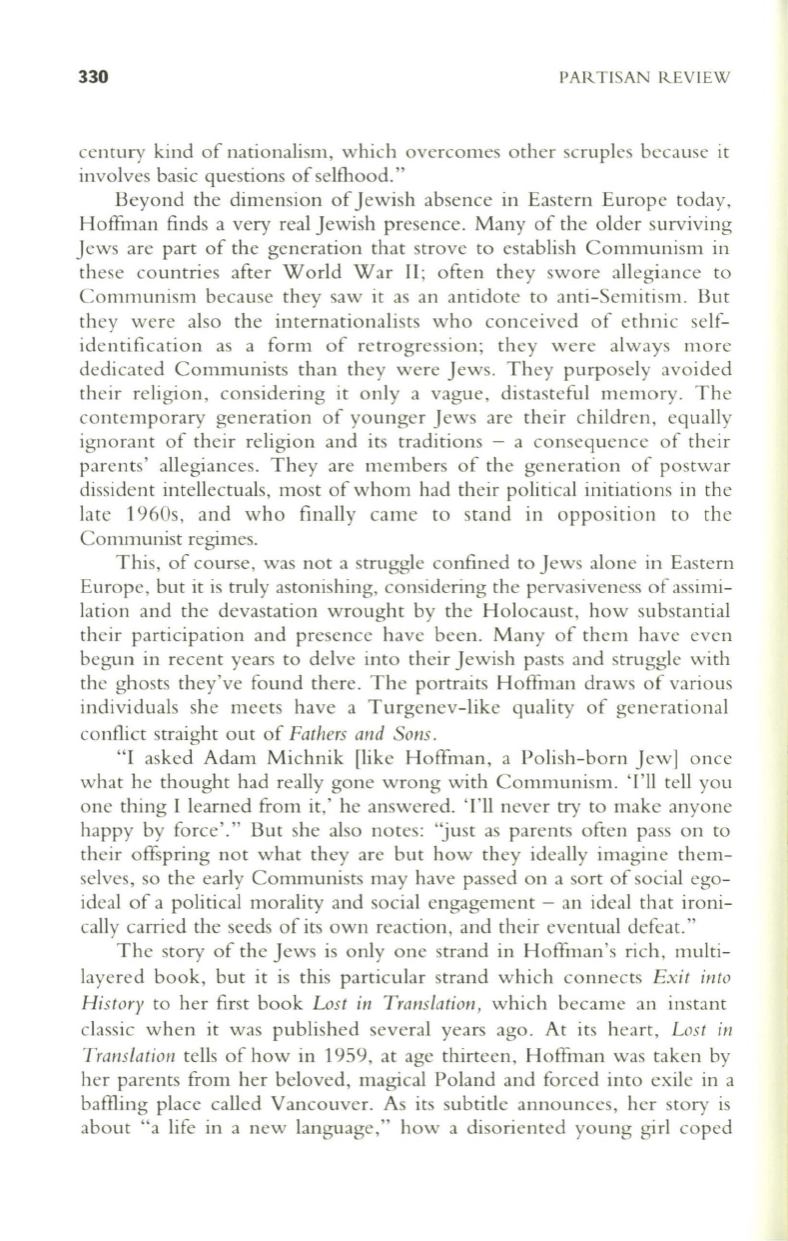
330
PARTISAN
R~EVIEW
century kind of nationalism, which overcomes other scruples because it
involves basic questions of selfhood."
Beyond the dimension of Jewish absence in Eastern Europe today,
Hoffman finds a very real Jewish presence. Many of the older surviving
Jews are part of the generation that strove to establish Communism in
these countries after World War II ; often they swore all egiance to
Communism because they saw it as an antidote to anti-Semitism. But
they were also the internationalists who conceived of ethnic self–
identification as a form of retrogression; they were always more
dedicated Communists than they were Jews. They purposely avoided
their religion, considering it only a vague, distasteful memory. The
contemporary generation of younger Jews are their children, equally
ignorant of their religion and its traditions - a consequence of their
parents' allegiances . They are members of the generation of postwar
dissident intellectuals, most of whom had their political initiations in the
late 1960s, and who finally came to stand in opposition to the
Communist regimes.
This, of course, was not a struggle confined to Jews alone in Eastern
Europe, but it is truly astonishing, considering the pervasiveness of assimi–
lation and the devastation wrought by the Holocaust, how substantial
their participation and presence have been. Many of them have even
begun in recent years to delve into their Jewish pasts and struggle with
the ghosts they've found there. The portraits Hoffman draws of various
individuals she meets have a Turgenev-like quality of generational
conflict straight out of
Fathers and Sons .
"[ asked Adam Michnik [like Hoffman, a Polish-born J ew] once
what he thought had really gone wrong with Communism. 'I'll tell you
one thing [ learned from it,' he answered. 'I'll never try to make anyone
happy by force'." But she also notes: "just as parents often pass on to
their offspring not what they are but how they ideally imagine them–
selves, so the early Communists may have passed on a sort of social ego–
ideal of a political morality and social engagement - an ideal that ironi–
cally carried the seeds of its own reaction, and their eventual defeat."
The story of the Jews is only one strand in Hoffman's rich, multi–
layered book, but it is this particular strand which connects
Exit into
History
to her first book
Lost in Translation,
which became an instant
classic when it was published several years ago. At its heart,
Lost in
Translation
tells of how in 1959, at age thirteen, Hoffman was taken by
her parents from her beloved, magical Poland and forced into exile in a
baming place called Vancouver. As its subtitle announces, her story is
about "a life in a new language," how a disoriented young girl coped


